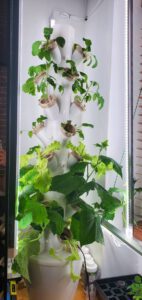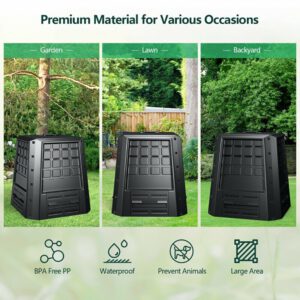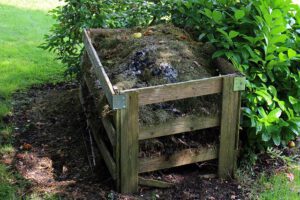Can organic fertilizer be used in hydroponics?
Organic fertilizer can be used in hydroponics, but it is important to understand how it works and what the benefits and drawbacks are.
Organic fertilizer is made from natural materials like plants and animals. It contains nutrients that are essential for plant growth, but it also has other materials that can clog up hydroponic systems.
Hydroponic Fertilizer Menu
What is hydroponics?
Hydroponics is a method of growing plants in water without soil. The plants are supported by a medium, such as gravel or clay pellets, and their roots are constantly submerged in a nutrient solution.
Hydroponics is often used to grow crops indoors, where there is no soil, or in areas where soil is of poor quality.
The main advantage of hydroponics is that it allows for a greater control over the plant’s environment, including temperature, humidity, and light.
Hydroponics can be used to grow a wide variety of plants, from vegetables and fruits to herbs and flowers.
While it is possible to use organic fertilizer in hydroponics, some gardeners prefer to use synthetic nutrients because they are easier to control.
What is organic fertilizer?
Organic fertilizer is a type of fertilizer that contains natural ingredients, such as composted manure, bone meal, and blood meal. These ingredients help to improve the quality of the soil and provide nutrients for plants.
Organic fertilizer can be used in hydroponics, but it is important to choose a product that is specifically designed for this purpose.
Otherwise, you may end up with an inferior product that does not provide the necessary nutrients for your plants.
The pros of using organic fertilizer in hydroponics
Organic fertilizer can be used in hydroponics, and there are several advantages to doing so.
One advantage is that organic fertilizer is often more environmentally friendly than synthetic fertilizer, since it is made from natural materials and does not release harmful chemicals into the air or water.
Another advantage is that organic fertilizer can provide plants with a wider range of nutrients than synthetic fertilizer, which can help to create a healthier plant.
Finally, using organic fertilizer in hydroponics can help to improve the taste of fruits and vegetables grown using this method, since the plants will take up the nutrients from the fertilizer more effectively.
The cons of using organic fertilizer in hydroponics
Organic fertilizer is not without its drawbacks, especially when used in hydroponics.
One of the biggest problems is that it can introduce harmful bacteria and fungi into the system, which can quickly spread and infect other plants.
Additionally, organic fertilizer can clog and clog up drip emitters and other irrigation equipment. This can lead to reduced water flow and eventually cause roots to rot.
Another downside to using organic fertilizer is that it often contains high levels of salts which can build up in the soil and lead to nutrient deficiencies in plants.
Yes, organic fertilizer can be used in hydroponics, but it must be diluted first. Otherwise, the plants will suffocate and die.
Chappy The Gardener
The verdict: Is it worth it to use organic fertilizer in hydroponics?
Organic fertilizer can be used in hydroponics, but it is not necessarily worth it. The benefits of using organic fertilizer include the fact that it is environmentally friendly and that it can improve the quality of the fruits and vegetables produced.
However, organic fertilizer is often more expensive than synthetic fertilizer, and it may not be as effective in terms of plant growth.
How do you make organic hydroponic fertilizer?
Organic hydroponic fertilizer can be made by combining organic matter with water and nutrients.
The organic matter can come from compost, manure, leaves, or other plant material. The water and nutrients can be provided by a variety of sources, including rainwater, groundwater, or sewage effluent.
The mixture is then placed in a container with plants, and the roots of the plants will take up the water and nutrients from the fertilizer.
What fertilizer to use in hydroponics?
Organic fertilizer can be used in hydroponics, but there are a few things to keep in mind.
First, organic fertilizer is not as concentrated as chemical fertilizer, so you’ll need to use more of it.
Second, organic fertilizer can contain harmful bacteria that can harm your plants, so it’s important to sterilize it before using it.
Finally, organic fertilizer can be more expensive than chemical fertilizer, so you’ll need to weigh the costs and benefits before deciding which one to use.
Can you grow hydroponic organically?
Organic and hydroponic growing are two methods of gardening that are often used interchangeably, but there are key differences between the two.
In organic gardening, soil is used as a medium to support plant growth, while in hydroponics, water is used instead. Both methods can be used to grow plants organically, but there are some important things to keep in mind if you want to grow hydroponically organically.
To start, it’s important to use an organic fertilizer when growing hydroponically. This will ensure that your plants are getting the nutrients they need without any synthetic chemicals.
There are a variety of organic fertilizers on the market, so it’s important to do some research to find one that’s right for your plants.
Which hydroponic system is purely organic?
There is no such thing as a “purely organic” hydroponic system because even systems that use organic fertilizer still rely on non-organic inputs, such as water and electricity. However, there are many hydroponic systems that use organic fertilizer exclusively, and these can be considered “organic” systems.
Organic hydroponic systems have many benefits over traditional chemical-based systems.
First, they are much better for the environment, as they do not release harmful chemicals into the air or water.
Second, organic systems are often cheaper to operate, as they do not require expensive fertilizers or other inputs.
Finally, organic systems tend to produce higher quality fruits and vegetables, as they are not exposed to chemicals that can sometimes diminish the quality of the produce.
The Best Organic Fertilizers for Hydroponics
Organic fertilizers are not commonly associated with hydroponics, but there are some organic products that can be used to fertilize plants grown in this way.
Hydroponics is a method of growing plants in water without soil, and it is often thought of as a more sterile and controlled environment than one using soil and organic matter. However, there are some benefits to using organic fertilizer in hydroponics, and it can be done with careful consideration of the plant’s needs.
Organic fertilizers can provide plants with essential nutrients like nitrogen, phosphorus, and potassium that are necessary for healthy growth.
They can also add other minerals and micronutrients that may be lacking in the hydroponic system.
The Different Types of Organic Fertilizer
Organic fertilizer is a great way to add nutrients to your plants without using harsh chemicals. There are many different types of organic fertilizer, each with its own benefits. Here are some of the most popular types of organic fertilizer:
Compost: Compost is made from decomposed organic matter, such as leaves and grass clippings. It’s a great source of nitrogen, phosphorus, and other essential nutrients.
Manure: Manure is another great source of nitrogen and other essential nutrients. It’s important to use manure from healthy animals that have been fed a nutritious diet.
Coffee grounds: Coffee grounds are rich in nitrogen, making them a great addition to compost or manure. They can also be used as mulch around plants.
Eggshells: Eggshells are an excellent source of calcium, which is essential for plant growth.
The Best Way to Use Organic Fertilizer in Hydroponics
Organic fertilizer can be used in hydroponics, but there are some things to keep in mind.
First, organic fertilizer is not as concentrated as chemical fertilizer, so you will need to use more of it.
Second, it is important to choose an organic fertilizer that is specifically designed for hydroponics.
Third, organic fertilizers release nutrients slowly, so they need to be applied more often than chemical fertilizers.
When using organic fertilizer in hydroponics, it is important to mix it well and apply it evenly. If you are using a liquid fertilizer, you can add it to your reservoir.
If you are using a dry fertilizer, you can add it to your grow media or top dress your plants. Apply organic fertilizer every two weeks or as needed based on plant growth.
In conclusion, organic fertilizer can be used in hydroponics, but it is not necessary. If you are looking to use organic fertilizer, make sure to do your research to figure out which brand and type is best for your plants.
Menu
Helps Us Grow – Share If You Like






